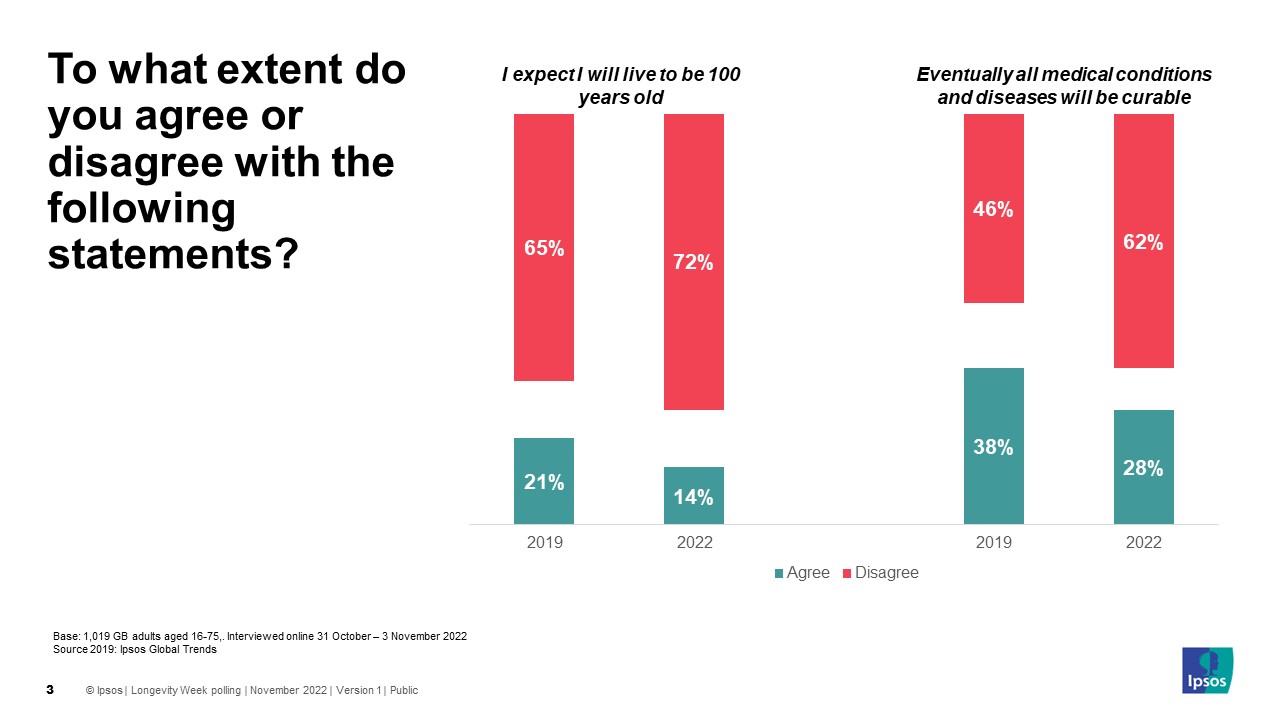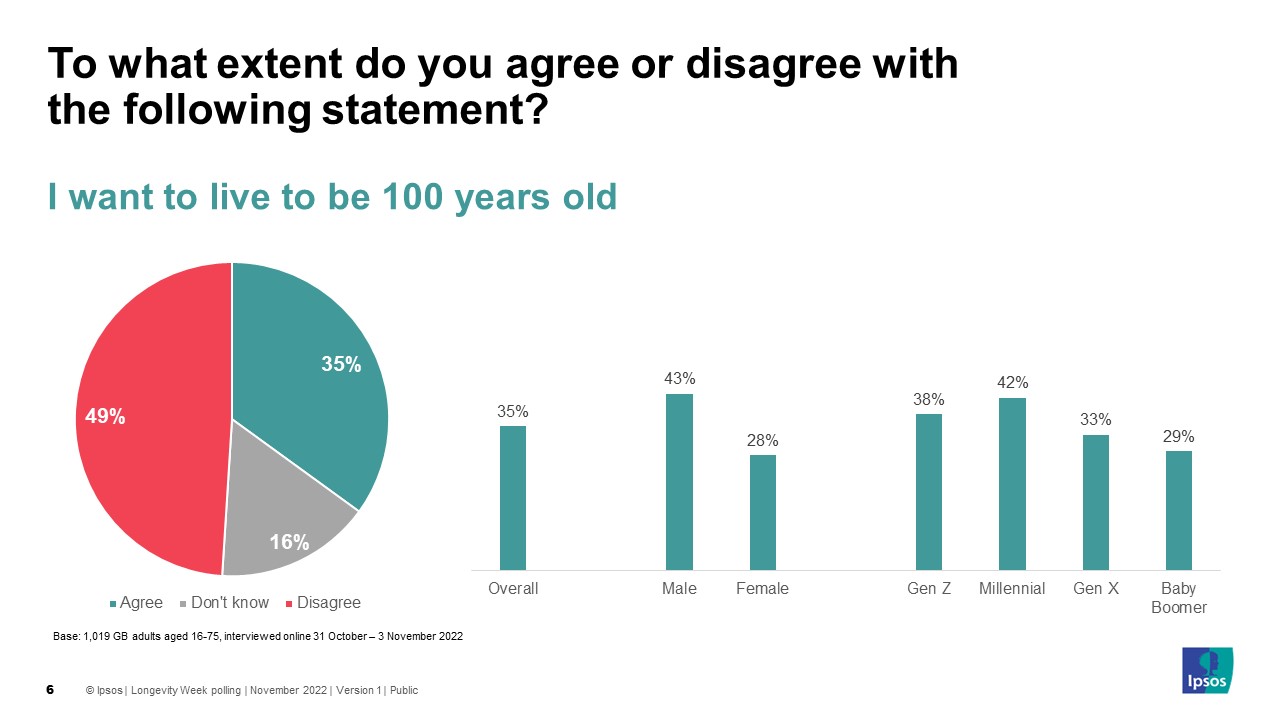One in seven Britons expect to live to be 100 years old, down by a third since 2019
New Ipsos research conducted for The Longevity Forum's Longevity Week finds Britons have become more pessimistic about their prospects of living to be 100 years old. Just 14% expect to reach this landmark, a decrease from 21% of people who felt the same during summer of 2019. There has also been a decrease in the proportion who feel that all medical conditions and diseases will eventually become curable (down to 28% from 38% in 2019).

Younger people rate their chances of reaching this milestone more highly. A quarter of 16-24 year olds think they will live to 100 (26%) compared with 13% of 25-34 year olds and just nine per cent of those aged 55-75. Despite evidence that they tend to have lower life expectancies than women, men are more confident than women of reaching this age (20% compared with 9% for women).
People are also more optimistic about the chances of today’s children reaching the same milestone. On average, they expect that of 100 baby girls born today, 34 will live to reach their century (although the most common, or modal, response was 5). For boys the average expectation is that 30 will live that long (with a modal score of 2). Both averages are ahead of the current estimates from the ONS that girls born today have a 19.6% chance of living to 100, while for boys the likelihood is 14.2%
Despite the drop in the proportion who think they will reach 100 years old, a larger proportion say they want to make it to this age. A third of Britons (35%) say they want to live to be 100 years old, while half (49%) disagree. Again, men and younger groups are more likely to agree, although it is 25-34 year olds who are most convinced they want a long life, with 45% of this group agreeing.

Many people have concerns about the implications of a 100-year life. Fewer than one in five think that they would have a good quality of life if they reached their century (17%) and over half (56%) think their quality of life would be poor. However, people are more confident that if they reach 100 years old life their quality of life would be better than it is for centenarians now: 38% think like for the super-aged will be better in the future than it is now, while a quarter (23%) think it would be worse. Fully seven in ten of the public agree that technological developments will improve old age for older people.
The public see changes in behaviour as the key to living to 100 years old. Seven in ten think that eating a healthy diet would help them live to be 100, while 63% consider keeping mentally active through activities like crosswords as important. The rest of the top five are also about steps people can take: frequent exercise, staying at a healthy weight and not smoking. Factors like genetics, luck and wealth feature further down the list.
The Longevity Forum said
Despite the fact that the pandemic has caused the biggest decrease in life expectancy in decades, we remain optimistic about today’s young living to 100. The question remains whether these expectations will be matched by healthy longevity. The focus should rightly be on ageing well. That is the big challenge we face individually and as a society.
Mike Clemence of Ipsos Trends & Foresight said
The experience of the pandemic over the last few years appears to have made Britons less optimistic that they will live to be 100 years old. However they are still more optimistic about this than population projections suggest they should be, and they have more optimism still for those born in 2022.
We also see a greater level of desire to live for a century, particularly among the young. Many expect that new technology will have improved living standards for the super-aged by the time they are receiving their telegram from the King.
Technical note
- Ipsos interviewed a representative quota sample of 1,019 adults aged 16-75 in Great Britain. Interviews took place on the online Omnibus from 31 October to 3 November 2022. Data has been weighted to the known offline population proportions. All polls are subject to a wide range of potential sources of error.



